Allegany County, Maryland, enslaved
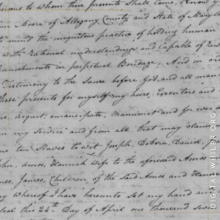
The legal documents for Allegany County, Maryland’s enslaved population, from 1792 to 1865 have been researched and transcribed by William Bauman
Digital WHILBR Collections about Ethnic Relations

The legal documents for Allegany County, Maryland’s enslaved population, from 1792 to 1865 have been researched and transcribed by William Bauman
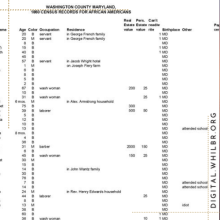
1860 was thus the final census prior to Maryland's 1864 constitution which freed the enslaved of Maryland. Therefore this census lists those who were free prior to the outlawing of slavery. It contains a column for 'color', where each person is listed as W (white), B (black) or M (mulatto). This collection contains those persons listed as black or mulatto in 1860. Enslaved persons were not included in the regular census.
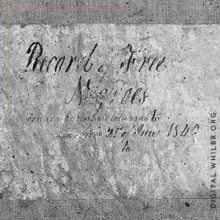
These indexes are from the registers of Washington County, Maryland freedom papers. There are five sets of books at the Maryland State Archives. Three of the registers, C-1937-1, C-1937-2, and C-1937-3, covering the years of 1827-1863, were indexed by Jeffery Wyand and are included here.
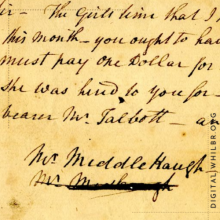
Many of the existing documents which deal with enslavement in Washington County, Maryland are the wills of slave owners, passing on their property after their deaths or making a gift of an enslaved person to a favored grandson. Others deal with the sale or purchase of an enslaved person. Stories written by the enslaved persons themselves have not survived.
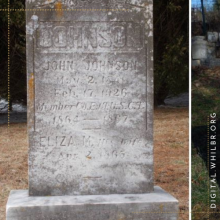
The United States Colored Troops (USCT) were composed of African American soldiers who joined the Union Army to fight in the Civil War. In Washington County, Maryland, no African Americans fought in battles at home, at the Battle of Antietam, South Mountain, Hancock or the various skirmishes as the Confederates headed south after the Battle of Gettysburg. But a significant number of men from the county did serve elsewhere during the war, either in infantry divisions or in the famous Brigade Band where the Moxley brothers and others served.
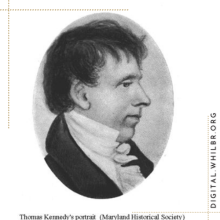
The Maryland state constitution barred Jews from holding public office unless they would submit to a Christian oath. This requirement was finally removed with the passage of the 1826 Jew Bill, which was championed by the non-Jewish legislator Thomas Kennedy. Dan Guzy's book on Thomas Keneedy provides Kennedy's story.